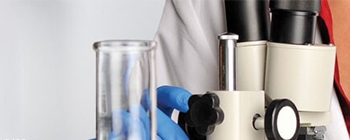Learn More
Thermo Scientific™ Nitrocellulose Membranes, 0.2 μm
Nitrocellulose is a popular binding matrix for western blotting because of its high affinity for proteins and compatibility with a variety of detection methods (western blotting, dot-blot assays, and other protein or nucleic acid methods).
Supplier: Thermo Scientific™ LSG77012
Description
Nitrocellulose is a popular binding matrix for western blotting because of its high affinity for proteins and compatibility with a variety of detection methods (western blotting, dot-blot assays, and other protein or nucleic acid methods). The 0.2-μm pore size is well-suited for western blotting, and this smaller pore size is ideal for the transfer of low molecular weight proteins or peptides and nucleic acids (<300 bp).
Features include:
100% pure nitrocellulose membrane
• Convenient—save time with pre-cut sheets
• Compatible with commonly used transfer conditions and detection methods such as staining, immunodetection, chemiluminescence, fluorescence, and radiolabeling
• High-binding affinity—provides excellent protein binding, blocks easily, and does not require pre-wetting with alcohol
• Low background—produce high-quality data with low background signal in both chemiluminescent and fluorescent western blotting
Specifications
| 12 cm | |
| Pierce Nitrocellulose Membrane, 0.2 μm, 12 x 8 cm | |
| Sheet | |
| 0.2 μm | |
| Room Temperature | |
| 25 Mini-gel Blots |
| 8 cm | |
| 25 Pre-cut Membranes | |
| Nitrocellulose | |
| Store membranes flat at ambient temperature, away from chemical vapors. Some solvent vapors may partially dissolve the membranes, which will disrupt the pore structure. Keep membranes out of direct sunlight. Sunlight may cause the nitrocellulose to dry and become brittle. Note: Nitrocellulose membrane filters are highly flammable. Keep away from heat and open flame. Flash point is approximately 2°C. Membranes can be sterilized by steam-autoclaving at 121°C. | |
| 12 x 8 cm |



